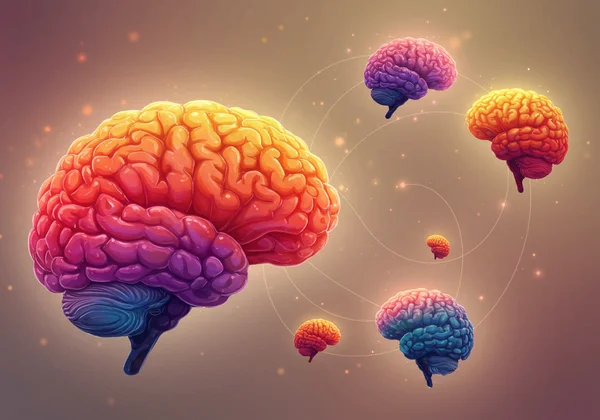Adult Autism Spectrum Test: First Steps After a New Diagnosis
October 8, 2025 | By Leo Whitaker
Just received your results from an online autism spectrum test or a formal diagnosis as an adult? This moment can feel overwhelming, liberating, confusing, and validating all at once. For years, you may have wondered, How do I know if I am autistic? Now, holding a piece of that answer can feel like the start of a new chapter. This guide is here to help you navigate those crucial first steps – from processing emotions and understanding yourself, to finding support and embracing this life-changing insight. Discover how to understand your unique traits, connect with others, and confidently embark on your journey. You’re not alone on this path to self-understanding.
Understanding Your Adult Autism Diagnosis
Receiving an adult autism diagnosis or a high-scoring screening result is a profound experience. It’s not about finding something “wrong” with you; it’s about finally having a framework to understand a lifetime of experiences. This new knowledge provides a lens through which your past, present, and future can be seen with greater clarity and compassion. It’s the beginning of a process of unlearning societal expectations and learning to embrace your authentic, neurodivergent self. Many find this discovery is the key that unlocks a deeper sense of peace and self-acceptance.

Processing Emotions & Validating Your Experience
There is no "right" way to feel. You might feel immense relief that you finally have an explanation for why you've always felt different. You could feel grief for the past struggles you endured without this understanding. You may also feel anger that it took so long to find out, or anxiety about what this means for your future. All these emotions are valid. Allow yourself the space to feel them without judgment. Your journey has been uniquely yours, and this diagnosis validates the challenges you faced. It confirms that you weren't "too sensitive," "awkward," or "difficult"—you were simply an autistic person navigating a world not built for you.
Understanding Masking & Its Impact on Your Life
For many late-diagnosed adults, the concept of masking (or camouflaging) is a revelation. Masking is the subconscious or conscious act of hiding your natural autistic traits to fit in with neurotypical social expectations. It can include forcing eye contact, mimicking social behaviors, scripting conversations, and suppressing stims (self-stimulating behaviors). While a useful survival strategy, masking is mentally and emotionally exhausting. It can lead to burnout, anxiety, and a persistent feeling of not knowing who you truly are. Understanding masking allows you to recognize how much energy you've spent simply trying to appear "normal" and gives you permission to slowly and safely start unmasking.
Navigating Self-Discovery & Embracing Neurodiversity
Your diagnosis is an invitation to get to know yourself on a deeper level. This phase of autism self-discovery is about shifting your perspective from one of perceived deficits to one of difference and strength. Neurodiversity is the concept that variations in the human brain are natural and valuable. Autism is not a flaw to be fixed but a different way of processing the world. Embracing this mindset is crucial for building self-esteem and creating a life that aligns with your true needs and abilities. Now, you have the opportunity to redefine what success looks like for you. If you're ready to learn more, an online autism screening can provide personalized insights.

Re-evaluating Your Past Through an Autistic Lens
Looking back at your life with this new information can be transformative. Childhood moments of social confusion, sensory sensitivities that were dismissed, or intense special interests that seemed odd now make perfect sense. This process isn't about dwelling on the past but reframing it. You can forgive yourself for social "mistakes" and honor the resilience you showed in navigating a world without the right vocabulary to explain your experience. This re-evaluation helps piece together the puzzle of your identity, creating a more cohesive and compassionate life story.
Celebrating Your Unique Strengths & Talents
Autism comes with a unique set of strengths. Many autistic individuals possess an incredible ability to focus deeply on subjects they are passionate about (hyperfocus), leading to expertise in their fields. Other common strengths include strong pattern recognition, a logical and analytical approach to problem-solving, deep loyalty, a strong sense of justice, and unwavering honesty. Take time to identify and celebrate these traits in yourself. What are your special interests? What problems are you uniquely skilled at solving? Learning to see these as talents, not eccentricities, is a powerful step in your journey.
Finding Community & Adult Autism Support
Connecting with other autistic people is often one of the most healing and validating experiences for a newly diagnosed adult. For the first time, you may find people who instinctively understand your communication style, share your sensory experiences, and validate your perspective without question. Finding your community helps combat the isolation that so many autistic people feel throughout their lives. This sense of belonging is a fundamental part of building a positive autistic identity. You can start your journey of discovery with people who understand.

Connecting with Online & Local Support Groups
The internet has made it easier than ever to find your tribe. There are countless online forums, Facebook groups, and Reddit communities (like r/autism and r/AutismInWomen) where autistic adults share advice, resources, and experiences. These spaces provide a safe environment to ask questions and learn from others who have been on this path longer. If you prefer in-person connection, look for local autistic-led support groups or meetups in your area. Hearing from others and sharing your own story can be incredibly empowering.
Building a Personal Support System
Beyond the wider autistic community, it's important to cultivate a personal support system. This may involve educating trusted friends, family members, or a partner about autism. Sharing your diagnosis can be daunting, so go at your own pace. You might start by sharing articles or videos that resonate with your experience. A supportive network is one that respects your needs, such as your need for alone time to recharge or your sensory sensitivities. Open communication is key to helping the people in your life understand how to best support you.
Practical Next Steps After Your Autism Spectrum Test
So, what to do after autism diagnosis or a strong screening result? The focus now shifts to practical application: how to use this new knowledge to improve your daily life. This involves seeking the right kind of professional help, learning to advocate for your needs, and making adjustments to your environment to better support your well-being. Instead of trying to change who you are, this is about adapting your environment to better support your authentic self. The initial step you took with an [autism test online] was the most important one.

Seeking Professional Guidance: Therapists & Coaches
While a diagnosis is validating, you may still need help navigating the challenges associated with being autistic in a neurotypical world. Look for therapists, counselors, or coaches who are "neurodiversity-affirming." This means they see autism as a difference, not a disorder, and will not try to make you "less autistic." They can help you develop coping strategies for sensory overload, manage co-occurring conditions like anxiety or depression, and build skills for self-advocacy.
Self-Advocacy in Relationships, Work & Education
Self-advocacy is the skill of communicating your needs and boundaries effectively. In the workplace, this might mean asking for accommodations like noise-canceling headphones, written instructions instead of verbal ones, or a more flexible schedule. In relationships, it could mean explaining that you need direct communication or that certain social events are too draining. Learning to advocate for yourself is an act of self-care. It empowers you to create environments where you can not just survive, but thrive.
Your Empowered Path Forward: Embracing Your Autistic Identity
Receiving an adult autism diagnosis is not an end point; it is a new beginning. It is the start of a journey toward radical self-acceptance and building a more authentic and fulfilling life. Be patient and kind to yourself as you navigate this path. You are learning a new language to describe a lifetime of feelings.
Ready to gain even deeper insights into your unique profile? Our free online autism spectrum test is a great starting point. For a comprehensive look at your strengths, challenges, and personalized action plans, consider unlocking our AI-powered deep analysis. Take the next step on your journey and get your results today.
Frequently Asked Questions for Newly Diagnosed Autistic Adults
What to do after a positive autism screening test?
A positive screening result from an online tool is a strong indicator that you may be autistic, but it is not a formal diagnosis. The next step is to decide if you want to pursue a formal assessment from a qualified professional, such as a psychologist or psychiatrist specializing in adult autism. In the meantime, you can use the screening results to begin your self-discovery journey, connect with the autistic community, and explore resources to better understand your traits. Our website provides a reliable free autism test to help you begin this process.
How to get a formal autism diagnosis?
To get a formal diagnosis, you'll need to find a healthcare professional experienced in diagnosing autism in adults. This can be a clinical psychologist, psychiatrist, or neurologist. The process typically involves interviews about your developmental history, behavioral observations, and standardized tests. It's a good idea to prepare by writing down examples from your childhood and adult life that align with autistic traits.
Can you be mildly autistic?
The autism spectrum is not a linear scale from "mild" to "severe." Instead, it represents a wide variety of traits and support needs. The terms "low support needs" and "high support needs" are often preferred. Someone might be considered "mildly autistic" if they require fewer supports in their daily life, but they are still fully autistic. Their internal experience and challenges are just as valid.
Is an online autism test accurate for adults?
High-quality online autism tests, especially those based on scientifically validated screeners like the Autism-Spectrum Quotient (AQ), can be very accurate for screening purposes. They are an excellent tool for self-exploration and determining if a formal assessment is warranted. However, they cannot replace a comprehensive diagnostic evaluation by a trained professional. They serve as a crucial first step, providing valuable insights to guide your next actions.